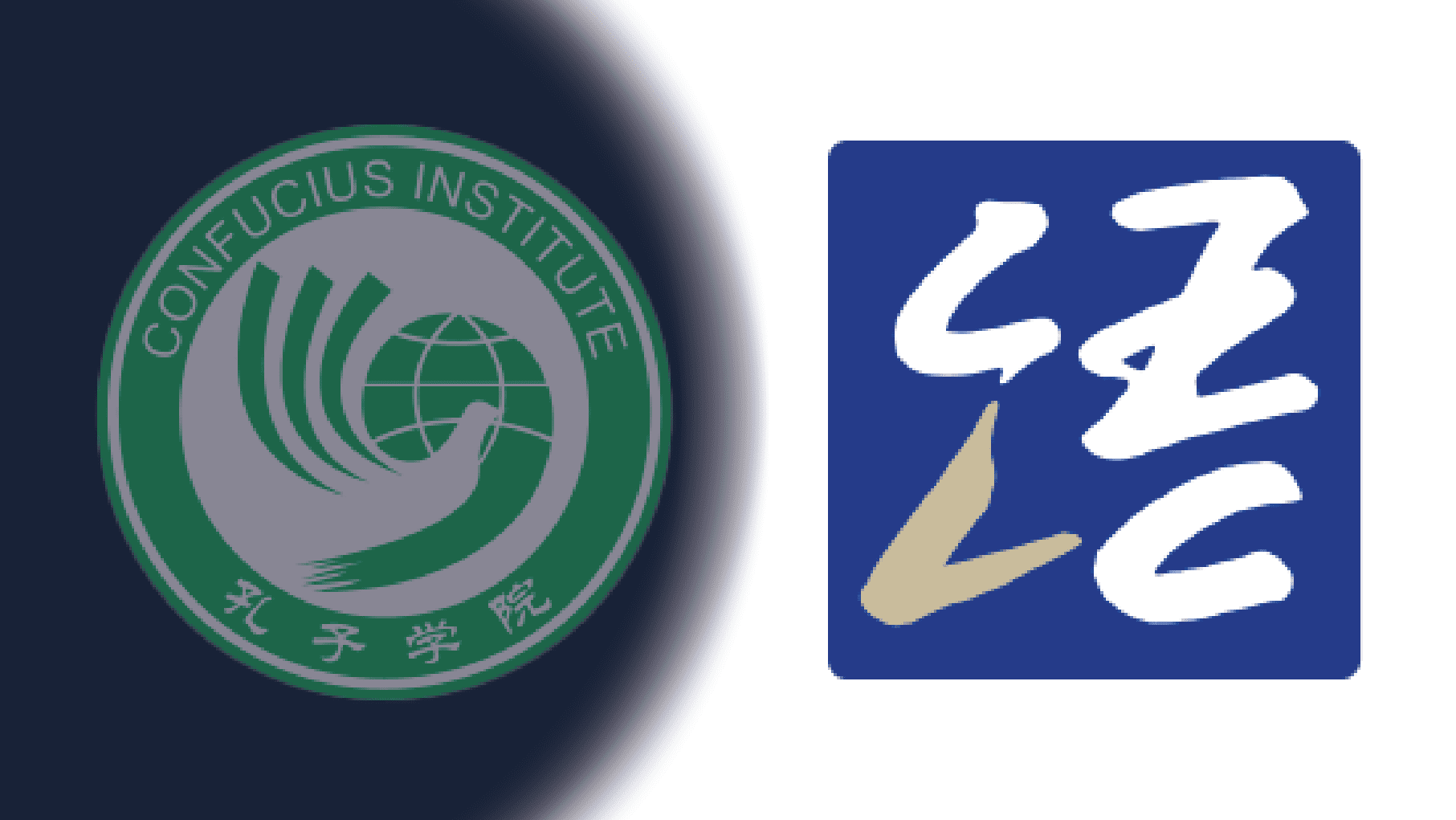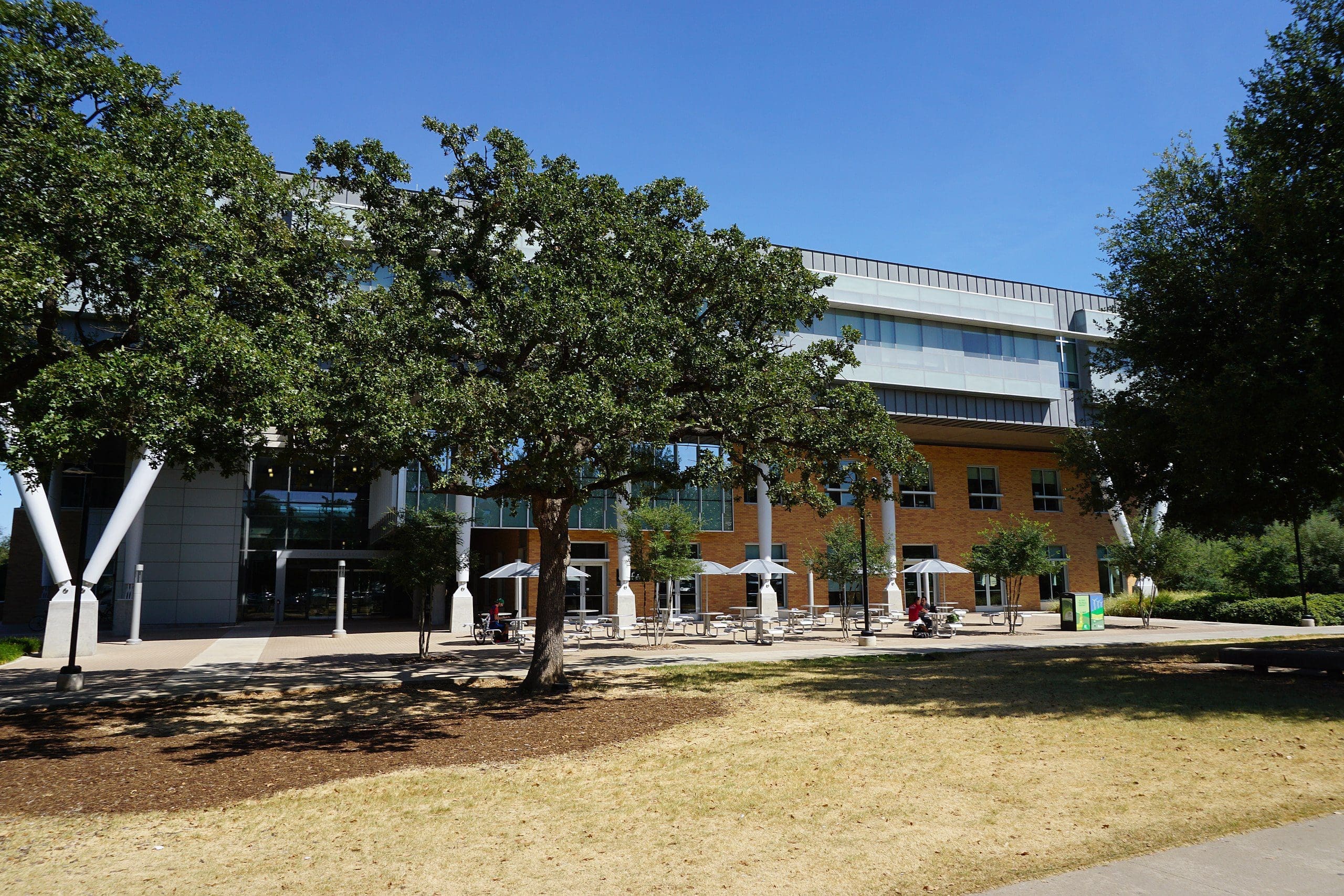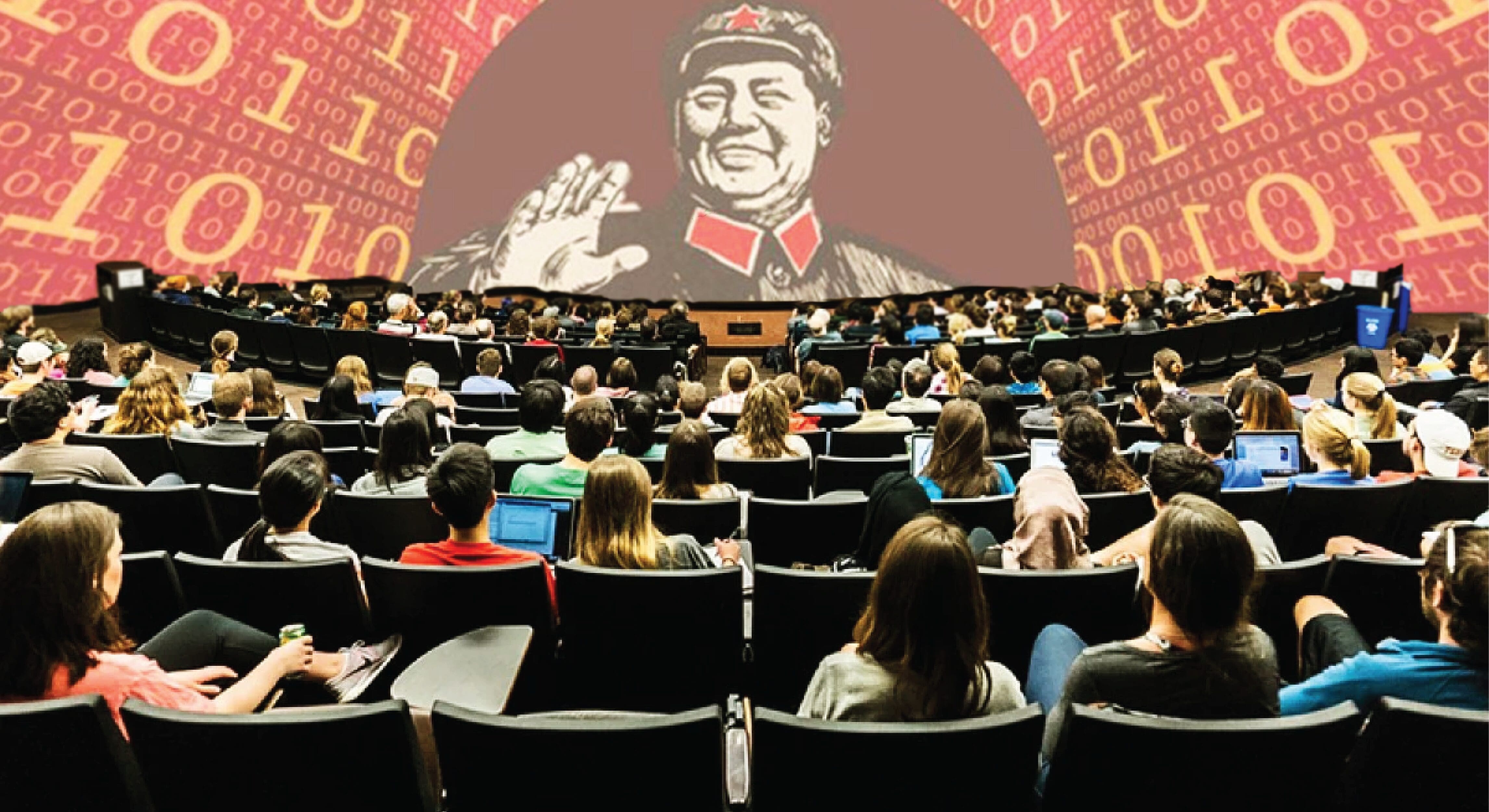Many may recognize Communist China as an imposing threat on the world stage, but fewer realize its imminent threat in Texas and just how far its influence and repression reach. This infiltration is deeper than previously thought.
Practically all Texans—and all Americans, for that matter—are aware of the crisis that has been building at the southern border for the past several years. The situation continues to be dire, as “in just the first three months of Fiscal Year 2023, over 7,000 migrants per day on average were apprehended after illegally crossing the border.” However, for all the illegal immigrants that are successfully apprehended, more enter the country unhindered. According to reports, that number reached an estimated 300,000 in just the first four months of fiscal year 2023. If the open border is any indication, many weak efforts to stymie the flow of illegal immigrants across the Southern border have proved futile. Recent efforts by state officials in Texas, namely the buoy border barrier, have thwarted some illegal border crossings.
Season Five of Texas Scorecard’s serial podcast Exposed examined the open border threat.
Although the invasion poses a veritable crisis, that is not the only external threat that faces the Lone Star State. Like the open border, little has been done to neutralize this threat at the state and federal levels. The actions taken thus far have failed to yield favorable results. Unlike the border crisis, this threat is more difficult to identify since it often hides in plain sight, or obscures its identity behind a friendly facade. But the threat is real. It penetrates the spheres of education, surveils American citizens, molds public policy, and compromises industry. This threat is the Chinese Communist Party.
In the summer of 2022, Texas Scorecard published an investigative series on how the Chinese Communist Party (CCP) has infiltrated the Lone Star State. Whether in the realm of education, politics, land, or commerce, the Chinese government sought new and creative ways to seep its poison into the American system and taint it to its liking.
Throughout this series, Texas Scorecard will examine more Chinese Communist incursions, explore new evidence surrounding their recent activities, and discover which lines of defense need extra support.
Why China?
Some would protest calls for hypervigilance towards China and the actions of China-based education, business, or philanthropic initiatives. They label such warning calls as fear-mongering and xenophobia. However, history and evidence indicate that Chinese influence peddling is concerning because of the Chinese Communist Party’s self-proclaimed goals.
To understand these goals, look at the United Front: an initiative to promote the ideology and influence of the Chinese Communists abroad, including in the West. For the CCP, institutions like education and commerce are not neutral, but rather opportunities for propaganda and soft power operations against enemies like the United States.
Here are the words of Chinese President Xi Jinping in 2017:
The united front is the political advantage and strategic policy of the Communist Party of China to unite people’s hearts and forces. It is an important magic weapon to win the cause of revolution, construction and reform. It is an important magic weapon to strengthen the Party’s class base, expand the Party’s mass base, and consolidate the Party’s ruling position. It is also an important magic weapon to build a moderately prosperous society in an all-round way and accelerate the promotion of society. It is an important magic weapon for the modernization of socialism and the realization of the Chinese dream of the great rejuvenation of the Chinese nation. [translated by Google]

Chinese President Xi Jinping
He wasn’t the only one. In the words of the director of the United Front Work Department, the state organization that spearheads United Front work,
The united front is a political alliance, and the united front work is political work. We must always adhere to the leadership of the party, take the party’s flag as the banner, the party’s direction as the direction, the party’s will as the will, and unite the members of all aspects of the united front around the party. [translated by Google]
These efforts are often very subtle, gradual, and innocuous. However, their results can be very dangerous to American values, policy, and security. It is key to remember that their “influence work… does not seek to disrupt democratic structures, but to repurpose them as tools facilitating the advancement of the policies of a totalitarian, expansionist régime.”
Bluntly, the CCP does not want to destroy the American system; it wants to sabotage it and use it to advance its interests on the world stage. A comparison of the CCP’s response to the Chinese coronavirus and the American federal government’s push for tyrannical mask and vaccine mandates gives an example of the threat this poses.
Over the past several years, lawmakers at both the state and federal levels have become increasingly aware of this threat, and have taken some measures to thwart the invasion. However, like the crisis on the southern border, these actions have not been enough. This is especially true in the realm of education.
Confucius Institutes
For those aware of CCP infiltration in the realm of education, the term “Confucius Institutes” may be a household name.
For those less familiar with the term, these are organizations funded by the Chinese Ministry of Education, and founded at universities worldwide. Chinese government officials have affirmed that these institutions serve as instruments of “soft power” and “expanding [Chinese] culture abroad” through innocent-sounding programs. In July 2022, Texas Scorecard reported on their presence nationwide, and their activities at numerous Texas universities and government school districts, both past and present.
Some might think these institutes are harmless vehicles for the task of language instruction. But nothing planned and orchestrated by the CCP is ever as simple as it appears. Everything is crafted with some ulterior motive in mind, which will benefit them. This strategy of cleverly disguising propaganda and influence peddling as harmless cultural exchanges is not new. Zhou Enlai, the Minister of Military Affairs in 1927 and a key figure in the CCP’s intelligence work, spoke of how to “use the legal to cover the illegal, cleverly combine the legal and the illegal.” (translated by Google)
The same is true of modern United Front work. One key characteristic of the activities of Confucius Institutes is that, as their programs drew more scrutiny from state and federal officials, they (and programs like them) began to retreat, then regroup and rebrand to continue the propaganda battle.
The New Hanban
By 2020, the Confucius Institute’s parent organization—the Chinese Language Council International, or Hanban—was no more. But in its place rose two new organizations: the Center for Language Education and Cooperation (CLEC) and the Chinese International Education Foundation (CIEF). Both have ties to the Chinese Ministry of Education.

CIEF is ostensibly a “nongovernmental charitable organization to provide funding to the Institutes.” Despite this disclaimer, CIEF has admitted to being registered under the Ministry of Education and the Ministry of Civil Affairs. Although they have a new name, virtually nothing has changed. The former executive in charge of the Confucius Institute Headquarters, Ma Jianfei, is now the director general of the CLEC. The president of the CIEF, Yang Wei, is a member of the “13th National Committee of the Chinese People’s Political Consultative Conference” (CPPCC). This conference is a United Front organization chaired by a member of the Politburo Standing Committee with thousands of Party members in attendance. In addition to this position, Wei was also an academician at the National Academy of Engineering in the United States.
This clearly shows that the CCP’s education infiltration operation remains unchanged; only the names have changed.
This rebranding effort proved successful. During the 2022-2023 academic year, the U.S. State Department sponsored the Teachers of Critical Languages Program, an initiative that brings Chinese teachers to the U.S. to teach Mandarin to students. This program was implemented by none other than the CLEC, alongside the American Councils for International Education. This program had some restrictions, such as prohibiting Ministry of Education officials from participating (even though CLEC itself is affiliated with the Ministry of Education). However, the following year, the application requirements were more restrictive, requiring applicants to be residents of Taiwan to be eligible.
These new activities illustrate how “New Hanban” has been forced to diversify its infiltration efforts after the shuttering of hundreds of Confucius Institutes worldwide in the last couple of years. Reporting done by the National Association of Scholars indicates that the reason most of these institutes shut down was only to start a new Chinese partnership. Although only fourteen institutes remain in the United States, this does not mean that the threat has been eliminated.
Government Schools Partner with the CCP
Although Confucius Institutes may be on the decline, less can be said for Confucius Classrooms, a subset of the program specifically designed for high schools.
On July 30, 2023, the Daily Mail reported seven Confucius Classroom were still active in the United States, one of them in Highland Park Independent School District (ISD), located in the Dallas area.
Texas Scorecard found another. When we first reported on Confucius Classrooms, one main participant in these programs was the Hurst-Euless-Bedford Independent School District (HEB ISD). According to disbursement data available on the website at the time, it was believed that their program was active in 2022. Recently obtained records from HEB ISD confirm the ongoing existence of Confucius Classrooms within the district. Specifically, as of 2023, these programs currently exist at Viridian Elementary School, Trinity High School, L.D. Bell High School, and Central Junior High School, as their agreements appear to have been approved in 2020 for a five-year term, and no termination records were received. Documents obtained from the district indicate that Viridian and Central Junior High applied for funding from the Chinese International Educational Foundation (CIEF), the “new Hanban,” as recently as 2022, while all four schools received funding as recently as 2021.
The intermediary for this relationship is still the Confucius Classroom Coordination Office (CCCO) at the International Leadership of Texas Global, which controls a network of 21 schools with Confucius Classroom programs in North Texas. How many of those programs are currently active is still unknown.
However, these schools also received funding from another source: the American taxpayer. Records show that HEB ISD was awarded $90,000 in 2020 via the STARTALK grant program, a language grant program funded by the National Security Agency (NSA).
One of the requirements in the National Defense Authorization Act (NDAA) passed by Congress in 2019 was that no federal defense funds could go towards an institution that hosted a Confucius Institute program. As such, to receive these funds, the district had to sign a non-affiliation statement with Confucius Institutes. In 2018, the administration discussed the requirement and determined that “this ruling is aimed only at institutes of higher learning, such as UTD [University of Texas Dallas]. In any case, we do not use any Confucius Classrooms money to fund STARTALK. We will not want to hire any Confucius instructors to provide our professional development.” In 2020, the administration discussed terminating their agreements to comply with the law, but no further action was taken based on the records received and subsequent Confucius Classroom activities.
In 2020, although the district had ongoing relationships with Confucius Classrooms, the non-affiliation form was signed. However, it only required the signer to affirm that no Confucius Institute employees or staff would teach in the program or dictate activities and curriculum.
Since then, district spending on the Confucius Classroom programs has continued apace. According to publicly available disbursement reports, HEB ISD has spent nearly $70,000 on their Confucius Classroom programs in the past decade.
J. Kyle Bass, CEO of Hayman Capital Management and a founding member of the Committee on the Present Danger: China, told Texas Scorecard:
I think the state needs to threaten to withhold any state funding for any schools in the event that they’re receiving any funding whatsoever from Confucius Institutes, United Front work groups, or any corporate or individual contributions tied to China.
Texas Scorecard contacted the chairs of the state’s education committees in the Texas House and Senate—State Rep. Brad Buckley (R–Salado) and State Sen. Brandon Creighton (R–Conroe)—for comment. None was received before publication.
Texas Scorecard likewise contacted the school board president at HEB ISD, but no response was received before publication.
U.S. Rep. Jim Banks (R–IN) recently appealed to the Department of Education to end relationships between American schools and the Confucius system. In a statement to Texas Scorecard, Rep. Banks said: “The Chinese Communist Party has no place in America’s classrooms. Schools that accept funding from our greatest adversary are exposing children to malign foreign influence and endangering our national security.”
Rebranding at Home
Just because Confucius Institutes are dwindling in number does not mean they have been completely eliminated. And even when the Institutes are shut down, vestiges of CCP influence may remain.
Another familiar institution in past reporting on the world of Confucius Institutes is the University of Texas at Dallas (UTD). As reported by Texas Scorecard in 2022, UTD shuttered its Confucius Institute in 2019, citing financial independence as its primary reason. However, according to new communications obtained by Texas Scorecard, the real reason the Institute was shut down appears to be to “continue to receive funding from the Department of Defense to run their Chinese language program.” In 2019, Congress passed the NDAA, prohibiting federal defense funds from going to universities with Confucius Institutes.
However, just because the Confucius Institute at UTD closed its doors to the Confucius Institute does not mean that it severed itself from the Chinese influence and language instruction it provided. Recall the findings of the National Association of Scholars, who discovered that many universities close their Confucius Institutes only to maintain relationships with their Chinese partner university, while other times they “replace” the Institute with a center of their own, working with many of the same institutions and staffed by the same people as the former Institute.
With the Confucius Institute closed, UTD created the UT Dallas Center for Chinese Studies in its place (now called the Center for Asian Studies). According to communications obtained by Texas Scorecard, this Center was a vision long before the Confucius Institute was shut down. Concerns about the same Chinese political influence being “rebranded” from the Confucius Institute to this new center drew the attention of Congress.
Texas Scorecard obtained records of a long email thread between the President of UTD, Richard Benson, and a staffer in U.S. Senator Chuck Grassley’s (R–IA) office in 2020. The staffer referenced statements about how the Center serves to extend the work of the Confucius Institute, and asked UTD to “explain in light of the letter denying that [a Confucius Institute] exists[.]” In response, the President assured the Senator’s office that “the CI does not continue in any guise at UT Dallas… The Center for Asian Studies at UT Dallas has no connection to the Chinese government.” The rest of his response contained a highly emotional snap:
I am growing rather exasperated that our acquiesce to your wishes doesn’t get acknowledged. Rather, we get yet another demand from Senator Grassley’s Office to prove that we do not have a Confucius Institute or a CI in disguised form. We don’t. Please, we have done what you have asked! A misunderstood statement on an obsolete web page doesn’t change that fact.
The university attorney, Timothy Shaw, likewise chimed in, emphasizing “that the CAS is autonomous and is in no way influenced by the Chinese government.” In response, the staffer thanked the university for notifying him of the changes and said: “Not faulting anyone, just pointing out the facts as I know them. Certainly fair to ask questions – that’s what the taxpayer pays us to do.”
Despite the university’s contention that there are no official connections between the old Institute and the Center, or between the Center and the Chinese government, there are still concerning connections.
The director of the Center for Asian Studies is still Dennis Kratz, the Dean of the School of Arts and Humanities who was closely involved in the activities of the Confucius Institute when it existed. In 2021, Kratz welcomed Sharon Gou to be the associate director of the Center for Asian Studies. Gou was the former director of the Confucius Institute at the University of Oklahoma. One of the other current associate directors, Ming Dong Gu, was the director of the former UTD Confucius Institute.
In an email to one “Zhong Ruiming” in 2022, Kratz referenced their discussion on how the Center for Asian Studies could “[build] on and [extend] the important, in some ways transformative contributions of the Confucius Institute…” and expressed anticipation for his next visit. According to a LinkedIn profile for “Ruiming Zhong,” he holds many high-level positions at several asset management firms in Hong Kong. Additionally, he “is the member of the tenth and eleventh National Committee of CPPCC.” The CPPCC, or the Chinese People’s Political Consultative Conference, openly admits to being a “patriotic united front organization of the Chinese people, serving as a key mechanism for multi-party cooperation and political consultation under the leadership of the Communist Party of China (CPC).” It is unclear whether this “Ruiming Zhong” is the same person as the “Zhong Ruiming” mentioned by Dennis Kratz.
In 2022, they discussed participating in a Lunar New Year celebration with the Confucius Classroom Coordination Office at the International Leadership of Texas Global, the organization that manages a number of Confucius Classrooms in North Texas. Whether they attended is uncertain.
Those aren’t the only concerning connections between the Center for Asian Studies and the Chinese government. One of the advisors to the program, Da Hsuan Feng, also serves as the “honorary Dean of Hainan University Belt and Road Research Institute” and is an “honorary professor of fifteen Chinese universities, which included Peking Union Medical College, Fudan University, Jilin University, Huazhong University of Science and Technology and Chinese Academy of Sciences Institute of Applied Physics.” It should be noted that both Huazhong University of Science and Technology (HUST) and Jilin University are classified as very high-risk institutions with secret security credentials by the Australian Strategic Policy Institute. Specifically, Jilin University is suspected of having ties to China’s nuclear weapons program. Fudan University is categorized as a medium risk for its defense research activities. Feng has also received numerous cultural awards, and is the author of a book entitled “Belt and Road Initiative: Chinese Version of “Marshall Plan.”
Texas Scorecard contacted U.S. Sen. Ted Cruz (R–TX) and U.S. Sen. Chuck Grassley (R–IA) for comment. Sen. Grassley’s office spokesperson said: “The Chinese Communist Party often uses discreet, backdoor methods to advance their agenda in the United States. Sen. Grassley is committed to exposing the CCP’s malign influence campaigns and protecting U.S. national security.” No response was received from Sen. Cruz’s office before publication.
Training Chinese Police
When investigating agreements between taxpayer-funded Texas universities and Chinese universities, a new player entered the scene. Sam Houston State University (SHSU) is a Texas State University system member. This university’s partnerships with China look different than those undertaken by others. For the past dozen years, SHSU has had a student exchange program with Zhejiang Police College in China. Their website boasts that “it is the only dual degree program involving an American university and a Chinese police university.”
Zhejiang Police College is “responsible for the provision of full-time academic education of policing and professional training of active police officers, and an educational aid program for Tibet and China Aid training programs.” It also serves as a training base for the Ministry of Public Security. The college has been “awarded honors of ‘Model Collectivity of National Unity and Progress’ and ‘Zhejiang Civilized Unit’ by the State Council and Zhejiang Provincial Government.”
Texas Scorecard contacted the Dean of the Criminal Justice Department at SHSU for comment about this program. In response, he noted that this program has not been active since the Chinese coronavirus, as it was paused due to travel restrictions and was never started again. When asked about the concerns surrounding a state institution training students from a Chinese police college, Dean Lyons responded:
Through our collaboration, these students (who were likely to advance in their agency because of the selection criteria required to get into the program) were exposed to a very different approach to criminal justice and, especially, policing. They saw a system here that is very much “of the people, by the people, and for the people,” from the community-oriented policing approaches by law enforcement, to the prosecution by elected District Attorneys, to the adjudication of criminal matters by elected judges (at least in this state). Frankly, I am very proud of our criminal justice systems and believe they are worthy of emulation by those countries that tend to be less democratic.
Thus Dean Lyons admitted that this program gave those training to be CCP cops, and by extension Beijing, an opportunity to gather intelligence on how American law enforcement operates. Such information could be valuable for learning how to game the system. Some in the Texas education system appear not to recognize how the Chinese government may be using seemingly innocent programs for nefarious purposes.
Notably, all members of the Board of Regents at Texas State University were either appointed or reappointed in recent years by Texas Governor Greg Abbott (R).
The CCP Influence Never Stops
As previously reported by Texas Scorecard, many universities began drafting memoranda of agreement/understanding (MOU/MOA) with various Chinese universities after their Confucius Institutes closed. Others developed these relationships despite never having a Confucius Institute to begin with. One of these universities is the University of North Texas (UNT), located in Denton.

University of North Texas
In response to an open records request for records of current agreements between the university and its Chinese counterparts, UNT provided Texas Scorecard with documentation of seventeen active agreements with Chinese universities.
The longest-lasting agreement is with Huazhong Agricultural University for a lubricant product patent, which has no fixed term but lasts for the lifetime of the patent. By contrast, an agreement with Lanzhou University of Finance and Economics for an undergraduate transfer program expires in 2026.
In 2025, three current agreements will expire: Nanjing Forestry University, Huaqiao University, and Xi’an Polytechnic University. These are agreements for academic degree exchange programs. In 2024, UNT’s transfer program agreements with Hangzhou Normal University (which includes academic degree programs and collaborative research), Chang’an University, and another transfer program agreement with Nanjing Forestry University will also come to a close, along with their arrangement for collaborative research with a long-standing partner, Beijing Normal University.
Based on email communications received from UNT, it appears that the first party to offer to renew the agreement, at least in the case of Beijing Normal University, was UNT, rather than the Chinese university. Furthermore, these relationships often included trips to China by UNT faculty and administration. For example, in 2017, UNT President Neil Smatresk and others traveled to visit Beijing Normal University. This trip included an AI workshop coordinated by “Badui Company.” This is possibly a misprint referring to “Baidu,” a Chinese internet and AI company. Baidu “has a long history of being the most proactive and restrictive online censor in the search arena.” This is not a new development, as several New York residents sued both Baidu and the Chinese government over the censorship of search results in 2011. Around the time of the UNT visit, the company worked with the Ministry of Public Security to censor anti-government speech. More recently, in the aftermath of the outbreak of the Chinese coronavirus in Wuhan, the Chinese government instructed internet companies, including Baidu, to “‘conduct special supervision’ on epidemic-related news.”
This year, a large number of agreements are due to expire, including those with Chongqing University, Nanjing University of Posts and Telecommunications, Northwestern Polytechnical University, South China Normal University, Yunnan University, Xi’an University of Science and Technology, Zhejiang University of Science and Technology, and Zhongyuan University of Technology. It is unknown as of publication whether any of these will be renewed.
Most of these universities, like Chongqing and Hangzhou Normal University, were designated medium security risks by the Australian Strategic Policy Institute. In the case of Hangzhou, this classification was due to their connections with the Ministry of Public Security and institutions like Zhejiang Police College and surveillance company Hikvision. Others were classified as low risk, but still had secret security credentials, like Nanjing University of Posts and Telecommunications, which in its inception had trained “communications personnel for the Chinese Communist Party and red army,” and even now “the school is seizing the opportunity, fully implementing Xi Jinping’s Thought on Socialism with Chinese Characteristics for a New Era” (translated by Google). Beijing Normal University is another institution categorized as low-risk but with secret security credentials. Still, others were very high risk, like Northwestern Polytechnical University, which has top secret security credentials and is one of the “Seven Sons of National Defence” [sic] due to its involvement in military and defense research.
In recent years, UNT has severed ties with some Chinese programs. For example, in 2020, they ended their relationship with several Chinese scholars visiting the university through scholarships made possible by the China Scholarship Council. This council provides scholarships from the Chinese government to students. Due to this expulsion, a representative from Kunming University of Science and Technology informed UNT that their collaboration may be delayed, as “the Media in China has been hyping the news about UNT’s ending the relationship with the visiting scholars funded by CSC these days, and I am afraid that this incident will lead to some new changes.”
Despite these events and concerns surrounding the proximity of these institutions to the Chinese Communist Party, it is nonetheless clear that UNT’s bilateral relationship with China is still alive and well.
Texas Scorecard reached out to UNT officials who oversee these foreign agreements, but no comment was received before publication.
More CCP Money
Some universities are receiving more than just CCP influence.
Despite the increased scrutiny on working with China, many Texas universities are still taking Chinese taxpayer monies. According to the Department of Education’s College Foreign Gift Reporting, the University of Texas at Austin alone has received $227,440 from Chinese government sources between 2020-2023. UT Arlington received over $7.5 million from a Chinese government source for a contract spanning 2018-2028. When it comes to taking money from China-based donors who do not identify as a government source, UT Austin, UT MD Anderson Cancer Center, UT Health Science Center San Antonio, and the University of Houston received a combined $41.6 million between 2020-2023.
In the words of James Millward, a China scholar who commented on the trend of American universities accepting funds from CCP-related groups:
I guess what I would say to universities that are tempted by this is, is there really no way we can fund Chinese studies in the United States without having the Chinese Communist Party fund it? … We’re not exactly in a situation analogous to the Cold War with the Soviet Union, but we did not fund the study of Russian language and the Soviet Union for all of those decades with grants from the Soviet Union.
Texas Scorecard contacted State Sen. Brandon Creighton (R–Conroe) and State Rep. John Kuempel (R–Seguin), both of whom chair committees or subcommittees on higher education in the Texas legislature, for comment about the aforementioned university connections. No reply was received before publication.
The Texas Hub: ILTexas Global
As previously mentioned, the hub for Confucius Classroom instruction in Texas is the International Leadership of Texas Global, specifically through their Confucius Classroom Coordination Office.
However, ILTexas has been making inroads all over the world, specifically in China. In 2016, ILTexas founded three international campuses in Guangzhou, Suzhou, and Harbin. According to the website, “The ILTexas schools in China are supervised by ILTexas – Global and 100% funded by Chinese investors and tuition paid by Chinese parents.” This relationship was recognized by the U.S. Embassy, and several prominent Texas public figures were present at the signing ceremony, including State Sen. Royce West (D–Dallas) and former Texas education commissioner Michael Williams.
In 2022, the Chinese ambassador visited the ILTexas Garland High School. West was also in attendance. At one point during the event, the ambassador and his wife were presented with cowboy hats as gifts, harkening back to former Vice-Premier Deng Xiaoping’s visit to Texas in 1979 when he was presented with a cowboy hat by one of the same teenage girls.
Texas Scorecard contacted Sen. West for comment, but no response was received before publication.
Targeting Texas’ Young
Although they have become few and far between, Confucius Classrooms still exist, even in Texas, to this day.
Universities are still partnering with Chinese universities, outside of the Confucius network, which is just as dangerous. Some of them may even be rebranding their Institutes while still creating a space for Chinese state propaganda and influence.
Unfortunately, the CCP United Front assault doesn’t stop with universities or government schools.
In part two, Texas Scorecard will examine the Chinese Communists’ surveillance and suppression tactics abroad—including institutions of higher education—even in the Lone Star State.
No ads. No paywalls. No government grants. No corporate masters.
Just real news for real Texans.
Support Texas Scorecard to keep it that way!





